Since Vladimir Putin launched his “special military operation”, which the U.S. and its allies called an “unprovoked invasion”, in Ukraine, the Western nations have done nothing but add fuel to the fire. By supplying weapons to Ukraine, instead of taking steps to end the conflict, neither Ukraine nor Russia could end the war. Neither the West nor the Kremlin could lose face.
The European Union leaders were more interested in playing politics than solving the skyrocketing prices of energy. Even though they cannot live without Russian energy, especially gas in the coming winter, they were ready to see people freeze to death than to lose the Ukraine war. Now, the European Union might have entered an energy apocalypse.
German 1-Year forward electricity has just breached €1,000 for the first time. That’s 10 times the price a year ago. It was a chaotic Friday when prices in Germany and France skyrocketed more than 25%. Weeks ago, the Deutsche Bank warned that an increasing number of German households will be forced to use firewood for heating thanks to jaw-dropping gas and electricity prices.
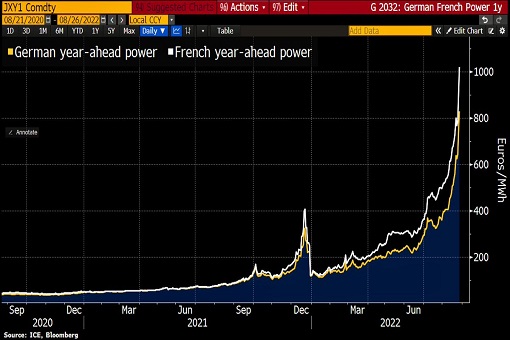
To stop panic, German Economy Minister has claimed that targets to fill-up the country’s gas storage facilities had been reached ahead of schedule. As Russian gas trickles to less than 10% of Germany’s consumption, the Europe’s biggest economy was scrambling to reach 85% storage capacity by October. Now, the government said it could be done by September.
While Germany has managed to reduce its reliance on Russian gas from 55% to about 35% of its demand since the start of the Ukraine war, it still heavily reliant on the Nord Stream 1 pipeline. European natural gas prices repeatedly hit record after Gazprom said it would shut down Europe’s single biggest piece of gas infrastructure for three days from Aug 31 to Sept 2.
Inflation already hit a 40-year-high of 7.5% in July (due to high energy prices) and its economy was stagnant – growing at 0% in the second quarter. Germany could see its inflation surge over 10% this fall – the highest in 70 years – according to the country’s central bank chief Joachim Nagel. It has already started turning off some heating and lights to save energy.
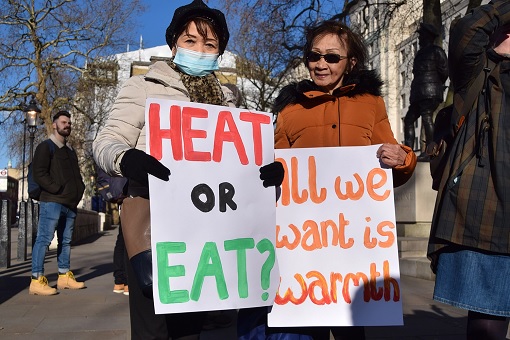
This month, it managed to squeeze down its gas reliance on Russia to 9.5%. However, in doing so, Germany relies entirely on Norway and Netherlands to supply the gas. The problem is they are more expensive, hence Berlin introduced something called “gas surcharge” to pass the extra cost to consumers – each household pays €480 more a year. When it emerged companies would make huge profits, it triggered criticisms.
Desperate, Germany was also forced to re-activate at least two power plants that used coal to generate power. It was a U-turn from a plan to phase out all coal-generated electricity by 2038 due to its impact on global warming and climate change. An estimated 30 million tonnes of hard coal will be imported to keep power stations running during this winter.
Hilariously, 50% of the coal for Germany’s power stations actually comes from Russia. The price of coal too has jumped since the Ukraine War started – hitting US$400 from just US$64 a tonne in early 2021. But even if Germany could survive this year’s winter, a long term solution has yet to be found. It is merely fire-fighting over a self-inflicted energy crisis.
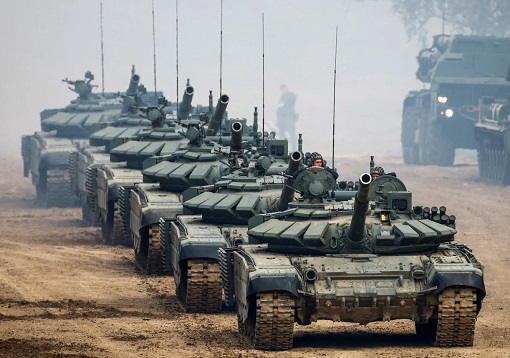
The EU’s energy crisis has just begun. Shell chief executive Ben van Beurden has warned that Europe may need to ration energy access for “several years” as the crisis facing the region is likely to last one winter. It screams hypocrisy when Europe governments slammed Russia for weaponizing gas, when it was Brussels who started the economic sanctions on Moscow.
European countries were quick to impose sanctions on Russia after its invasion of Ukraine, but too slow to think through the economic consequences. Worse, the arrogant politicians never learned from history. Since the 1970s energy crisis, Europe has been and will always be a net importer of oil and gas. To pick a fight with the same country it relies on energy is extremely foolish.
According to Capital Economics, if gas prices stay at current levels, Vladimir Putin could just exports to Europe at 20% of normal levels for the next two to three years, and then could cut off supplies entirely for a year without adverse effects on the Russian economy. That’s how much leverage Moscow possessed if it wants to teach Europe a lesson.
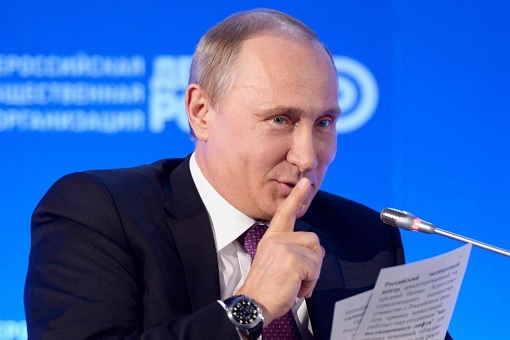
As much as Western analysts love to talk about the economic damage done to Russia after sanctions, history has shown that Russia can withstand plenty of pain over prolonged periods. For example, the siege of Leningrad between 1941 and 1944 demonstrated how the Russians stubbornly faced a blockade that lasted nearly 900 days.
The Western countries have been bragging about building clean energy and greener forms of energy for decades. Yet, when Russia cuts its energy supply to the continent, the first thing it did was to go back to its dirty energy – coal power generation. Europe is trying to wean itself off Russian gas, yet it tries to act tough even though it does not have the capability to do so.
In France, with an increase of 28.5% in energy prices, the situation is so bad that people are collecting firewood to use wood-burning fireplaces to brace themselves for the upcoming winter. As a result, the price and demand for firewood have increased. The energy crisis is so bad that power stations are being permitted to break environmental rules.
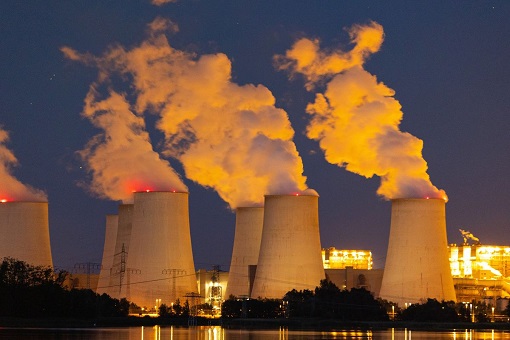
The French Nuclear Safety Authority (ASN) granted a temporary waiver allowing five nuclear plants across the country to dump more than the authorized amount of hot water into rivers. But rivers and waterways, used to cool power plants, are drying up due to the record-breaking summer heat waves. The demand for fans and air conditioning in the heat puts even more pressure on Europe’s energy supplies.
In the United Kingdom, it could cost the country a whopping £100 billion (US$117 billion) if it plans to subsidize energy bills by freezing gas and electricity prices over the next two winters. An average household could be paying as much as £6,433 (US$7,533) a year for natural gas and electricity come next spring if the government doesn’t intervene.
The cost to combat the energy crisis in Britain due to Ukraine War is essentially higher than the Covid-19 pandemic. The U.K.’s inflation rate skyrocketed to its 40-year-high of 10.1% in July as rising food prices escalated. But the worst is not over in Britain. A recent report from Citi Group showed the U.K. inflation hitting 18% next January (2023) largely due to energy prices.
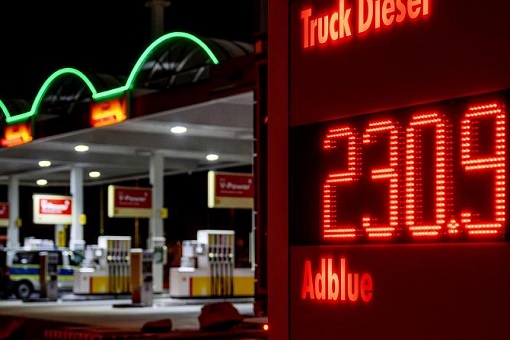
Poland, after having recklessly and arrogantly banned Russian coal imports since April, is now scrambling to find emergency solutions. It needs 10 million tonnes of coal every year to heat households. About half of this is extracted domestically, while Russia made up about 40%. Warsaw imported Russian coal because it was cheaper. Polish coal is very expensive to mine because it is buried very deep.
As people try to keep the usage of energy down, but the bills keep climbing, Europe is facing a major social test ahead of winter – protests and social unrest. In France, Spain and Belgium, angry workers have already gone out on strike in the public transport, health and aviation sectors – demanding higher wages to help them survive with skyrocketing inflation.
British group – “Don’t Pay UK” – is calling for people to boycott energy bills from October 1. Meanwhile, trade union-backed “Enough is Enough” campaign kicked off a series of rallies and actions in mid-August calling for pay rises, rent caps, cheaper energy and food, and taxes on the rich. British charity National Energy Action (NEA) estimates 8.9 million UK households could be in fuel poverty after October.
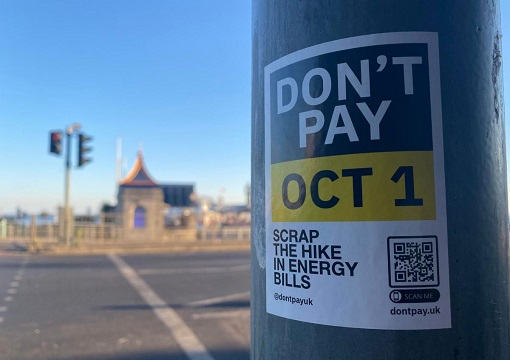
Reducing the number of showers and cooking, suffering the heat during summer without air-conditioned and even eating only one meal a day could only do so much to reduce energy consumption. An obvious way to bring energy prices down would be to find a way of ending the war. Even Boris Johnson, initially excited to fight Putin, finally warned the UK of tough times ahead.
Other Articles That May Interest You …
- The Worst Is Not Over Yet – Why Inflation & Recession Are Still Alive And The Global Economy Is Still In Bad Shape
- U.S. Plunges Into Recession – But Biden Govt Scramble To Redefine Recession To Create Illusion There Isn’t Any Recession
- Oil Price Could Go Higher & Europe Could Be In Trouble – Putin Might Abruptly Cut Gas Supplies To The E.U. In Coming Weeks
- A Shift In Propaganda To Damage Control In Washington – Why President Biden & Western Media Making U-Turn Now
- Recession Inevitable – Federal Reserve May Slap 0.75% Rate Hike To Trigger A Recession To Try Fix Its Own Screw-Up
- Gloom & Doom Views From World’s Financial Elite At World Economic Forum – Russia Appears Winning Ukraine War
- Economic & Financial Meltdown Is Here – All Signs Lead To Recession, Stagflation, Jobless And A Repeat Of Dot-Com Bust
- Russia Cuts Off Gas To Poland & Bulgaria – European Gas Jumps 24% As Putin Starts Punishing “Unfriendly Countries”
- Ukraine Invasion – Putin’s Real Intention That Conventional Wisdom Have Failed To Comprehend
- U.S. Sanctions Fail – How Russian Currency Emerges Stronger Than Pre-War With A New Gold Standard
- Pay Gas In Ruble Or Else – Europe In Serious Trouble As Putin Retaliates Against Western Sanctions
- From Wheat To Oil & Gas – How Russia Invasion Of Ukraine Affects Europe’s Food Supply, And Even Your Loaf Of Bread

|
|
August 29th, 2022 by financetwitter
|


|

|

|

|

|

|




























Comments
Add your comment now.
Leave a Reply